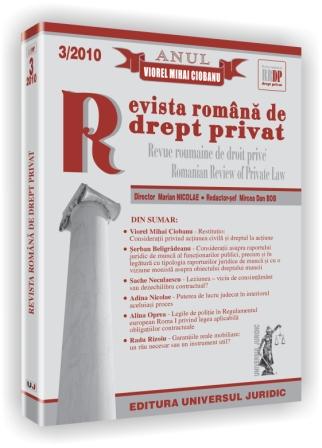Puterea de lucru judecat în interiorul aceluiasi proces
Res judicata in the same trial
Author(s): Adina NicolaeSubject(s): Law, Constitution, Jurisprudence
Published by: Universul Juridic
Keywords: res judicata; civil trial; non omisso medio
Summary/Abstract: Res judicata manifests itself not only from a litigation already resolved to/ towards another litigation to be resolved, but also in the same trial, with the force of the positive effect of res judicata that may influence the judgment on the merits or that comes only to ensure the immutability of jurisdictional examination, in the same trial, of a litigious issue. Thus, generally, the issue of the res judicata arises when the court is notified with the same request or a request closely related to the litigious matter resolved previously. However, it may also occur that the judge in the case deals, in the same trial, with the need to comply with res judicata regarding some pre-trial matters (that a special court resolved and on which the settlement of the pending case depends) or regarding preliminary matters, on which the judge himself/ herself ruled prior to passing over to the resolution of the cause on the merits. Res judicata within the same trial also occurs in case of legal matters resolved by the court of appeal, when it refers to retrial (and when the litigious matters it resolved in law are imposed by the force of the positive effect of res judicata). The principle “non omisso medio” also constitutes an application of the way in which res judicata manifests itself within the same trial, as long as the matters resolved by the first court and not subject to censure by the court of appeal can no longer be subject to criticism in the subsequent stage of appeal, that of second appeal (which means that, in order to have the effect of res judicata, the trial may not have been completed in relation to all the matters submitted to judgment, but only punctual matters, which can no longer be subject to judicial debate, as long as the legal ways of challenge were not used). From the perspective of the Draft New Civil Procedure Code, we can also speak about the authority of matter interpreted in relation to legal matters that, within a mechanism for ensuring an unitary judicial practice and based upon notification of the last instance court, are to be resolved (art. 503-505 of the Draft New Civil Procedure Code).
Journal: Revista Română de Drept Privat
- Issue Year: 2010
- Issue No: 03
- Page Range: 76-95
- Page Count: 20
- Language: Romanian
- Content File-PDF

